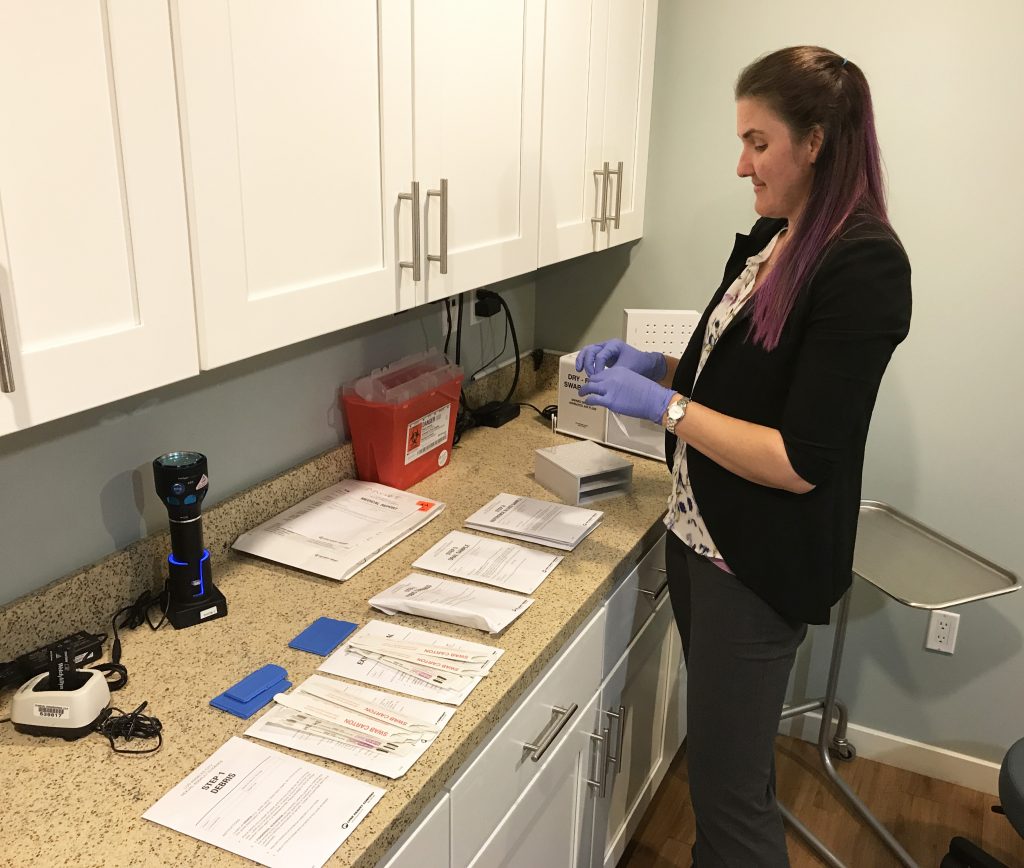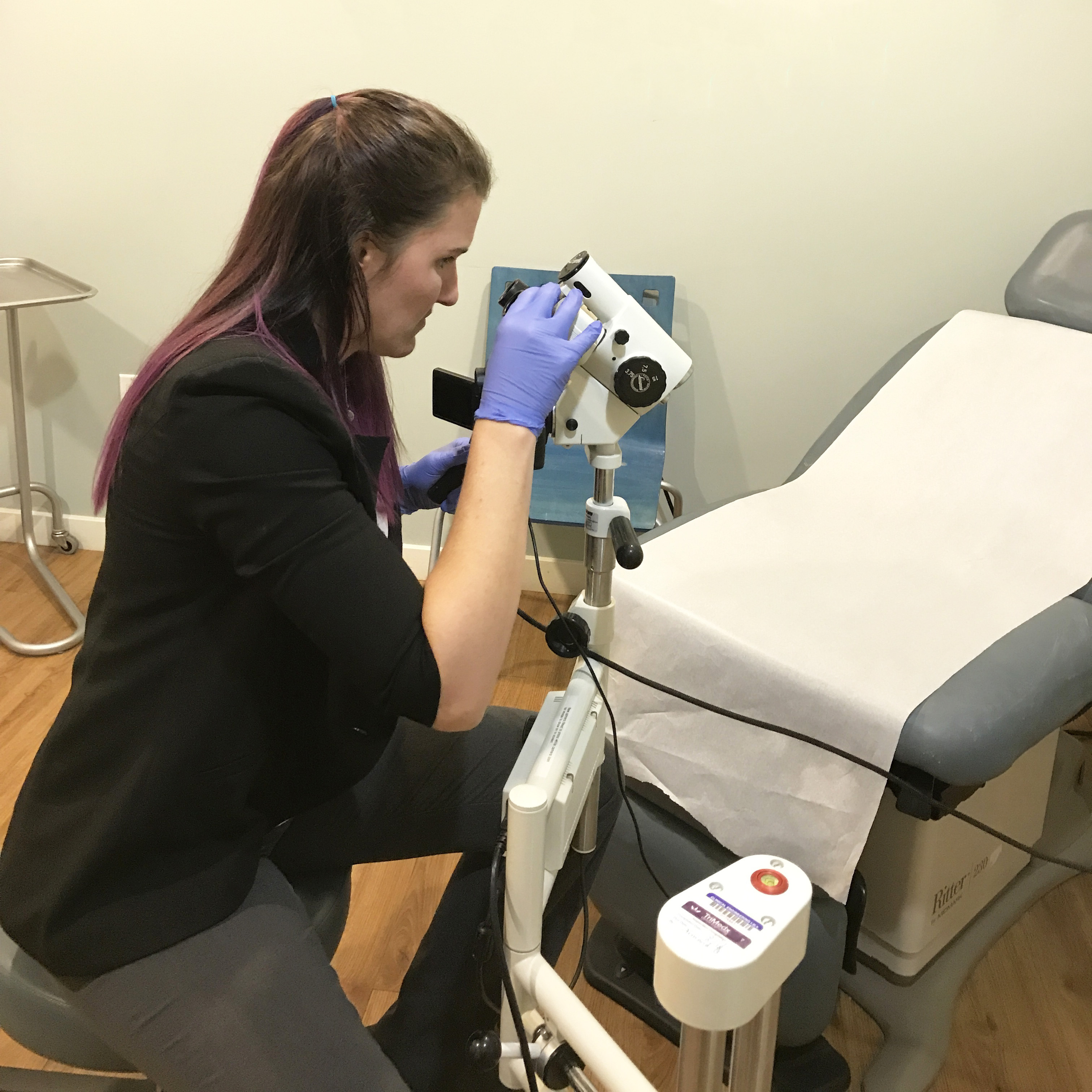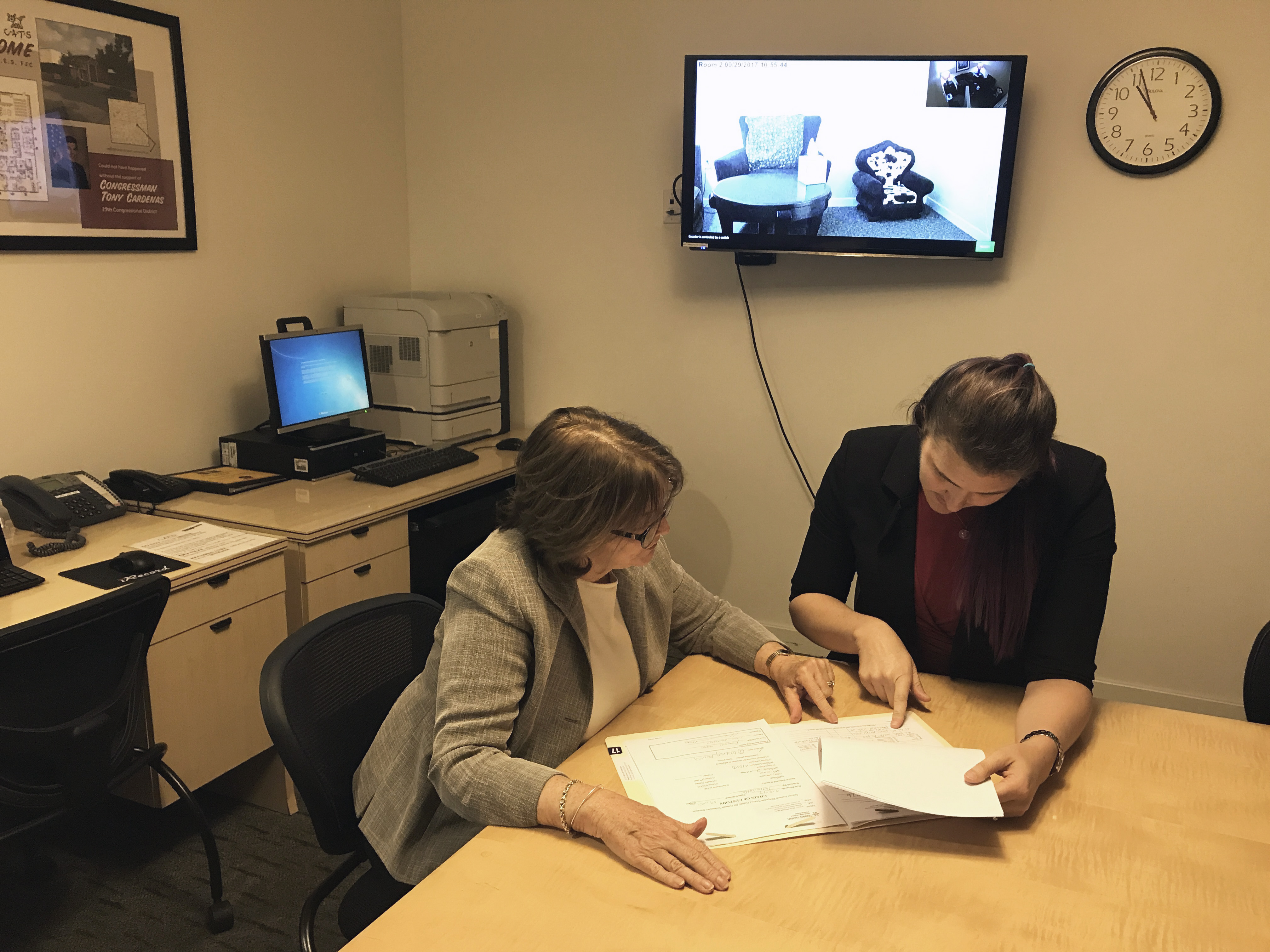Providing Strength in the Wake of Trauma
October 19, 2017
By Dave Andrews

Lessons in self-defense will teach a person how to stay calm, quickly assess the situation, and take appropriate action. Many of those same characteristics are required of PAs, which is why becoming one was a natural fit for Katie Thompson.
For the last 15 years, Thompson has worked as a self-defense instructor in Southern California, training women how to protect themselves against a physical assault. She also worked as an emergency medical technician for several years in South Central Los Angeles, but she always felt she needed to do more.
“I loved the quick thinking and problem solving aspects of being an EMT,” Thompson said. “But I wanted to have a more personal connection with my patients, to help them through the entire recovery process.”
She began shadowing PAs and quickly realized it was the perfect career for her. Soon after graduating from MEDEX Northwest, the PA program at the University of Washington, Thompson accepted a position as a forensic examiner at the Center for Assault Treatment Services (CATS) in Van Nuys, California.
“It was exactly the type of work I wanted to dedicate myself to,” Thompson said. “It allowed me opportunities to make a significant impact in the lives of my patients.”
Something New Every Day
Thompson says the cases she manages vary significantly. Within the past year, CATS has helped more than 1,100 patients coming from all walks of life and ranging from as young as six months old to 99 years of age.

Often times the survivors’ cases are taken to court, so to ensure every potentially relevant detail of their experience is recorded, the providers follow a very thorough and structured interview sequence. They use forensic interviewing techniques, which help the patients feel more at ease when discussing difficult topics, but won’t lead them in a particular direction.
“It’s challenging because this is the ultimate experience in establishing trust with someone whose trust in others has likely been compromised,” Thompson said. “To build that trust, we need to be compassionate, but at the same time, we have stay completely impartial. As evidence collectors, we cannot take sides at any point during the process.”
The Right Skills
Thompson acknowledges she had zero specialized training when she started, but she quickly completed a series of professional education classes offered through the district attorney’s office, and she focused on seeking out on-the-job training opportunities.
However, she says it was her PA education that helped prepare her the most.
“As PAs, we’re taught to be very thorough and detail-oriented, and that is so useful in this field,” Thompson said. “Our strong education in behavioral medicine is also helpful for interviewing a wide variety of people and understanding the continuum of sexual assault care.”
RN MaryAnn Lague, SANE-A, SANE-P, is the director of CATS, where she has worked for more than 18 years. In that time she has managed a broad range of providers who possessed many valuable skills—and Thompson is no exception.
“Katie is highly compassionate and extremely detail-oriented, which are two essential traits for providing high-quality care, especially to assault victims,” Lague said. “Her unique character and skill set make her an absolutely amazing examiner who is continually driven to help out whenever and wherever possible.”
In a relatively short period of time working for the program, Thompson has already proven herself to be a valuable asset not only to her patients but also to her fellow providers.
“I reach out frequently to my coworkers for advice, support and encouragement. And I’m always happy to support them in return,” Thompson said. “Despite the challenging work that we do, the team is able to stay upbeat and positive largely because we have a unique bond and know how to work together effectively.”
Making an Impact
In this line of work, there is great potential for burnout and emotional fatigue. So Thompson does her best to maintain a good work-life balance. However, some of her most challenging cases are the ones that provide the most motivation.
Thompson recalls a time not long after she started working at CATS when a young woman came in late one night. She was scared and in pain. It took several hours to complete her interview and a thorough exam.
“When she came back three days later for a follow-up exam, the first thing she did was give me a huge smile and an even bigger hug,” Thompson said. “People always remember us because we’re there at such a critical time in their life when they need that strength the most.
“I feel honored to be there to provide them with that strength.”
Dave Andrews is a freelance writer and public relations professional based in Northern Virginia. Contact him at [email protected].
Thank you for reading AAPA’s News Central
You have 2 articles left this month. Create a free account to read more stories, or become a member for more access to exclusive benefits! Already have an account? Log in.




